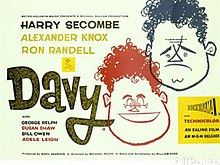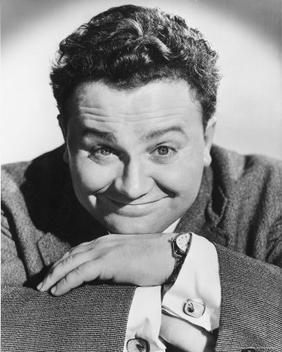
Sir Harry Donald Secombe was a Welsh actor, comedian, singer and television presenter. Secombe was a member of the British radio comedy programme The Goon Show (1951–1960), playing many characters, most notably Neddie Seagoon. An accomplished tenor, he also appeared in musicals and films – notably as Mr Bumble in Oliver! (1968) – and, in his later years, was a presenter of television shows incorporating hymns and other devotional songs.

Peter Sellers was an English actor and comedian. He first came to prominence performing in the BBC Radio comedy series The Goon Show. Sellers featured on a number of hit comic songs, and became known to a worldwide audience through his many film roles, among them Chief Inspector Clouseau in The Pink Panther series.

The Goon Show is a British radio comedy programme, originally produced and broadcast by the BBC Home Service from 1951 to 1960, with occasional repeats on the BBC Light Programme. The first series, broadcast from 28 May to 20 September 1951, was titled Crazy People; subsequent series had the title The Goon Show.

The Ladykillers is a 1955 British black comedy crime film directed by Alexander Mackendrick for Ealing Studios. It stars Alec Guinness, Cecil Parker, Herbert Lom, Peter Sellers, Danny Green, Jack Warner, and Katie Johnson as the old lady, Mrs. Wilberforce.
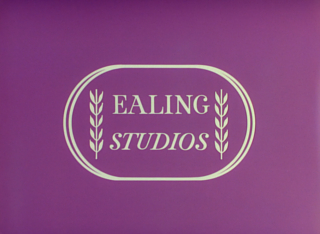
The Ealing comedies is an informal name for a series of comedy films produced by the London-based Ealing Studios during a ten-year period from 1947 to 1957. Often considered to reflect Britain's post-war spirit, the most celebrated films in the sequence include Kind Hearts and Coronets (1949), Whisky Galore! (1949), The Lavender Hill Mob (1951), The Man in the White Suit (1951) and The Ladykillers (1955). Hue and Cry (1947) is generally considered to be the earliest of the cycle, and Barnacle Bill (1957) the last, although some sources list Davy (1958) as the final Ealing comedy. Many of the Ealing comedies are ranked among the greatest British films, and they also received international acclaim.
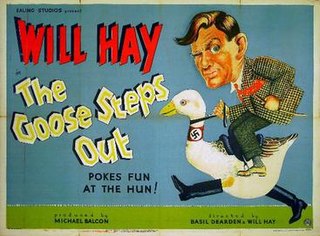
The Goose Steps Out is a British film released in 1942, starring Will Hay, who also co-directed with Basil Dearden. It is a comedy of mistaken identity, with Hay acting as a German spy and also an Englishman who is his double. It was the film debut of Peter Ustinov.
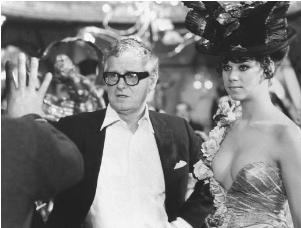
Basil Dearden was an English film director.
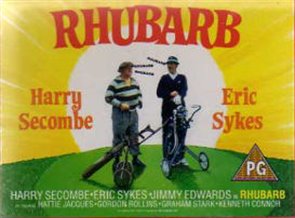
Rhubarb is a 1969 British short film written and directed by Eric Sykes, starring Sykes, Harry Secombe and Jimmy Edwards. The dialogue consists entirely of repetitions of the word "rhubarb", all the characters' last names are "Rhubarb", the vehicle number plates are "RHU BAR B", and a baby "speaks" by holding a sign with the word "rhubarb" written on it. Sykes remade the film in 1980 as Rhubarb, Rhubarb for Thames Television.

Barnacle Bill is a 1957 Ealing Studios comedy film directed by Charles Frend and starring Alec Guinness. It was written by T. E. B. Clarke. Guinness plays an unsuccessful Royal Navy officer and six of his maritime ancestors.
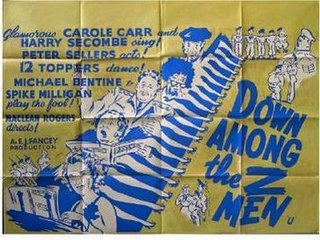
Down Among the Z Men is a 1952 black-and-white British comedy film directed by Maclean Rogers and starring the Goons: Spike Milligan, Peter Sellers, Michael Bentine and Harry Secombe.
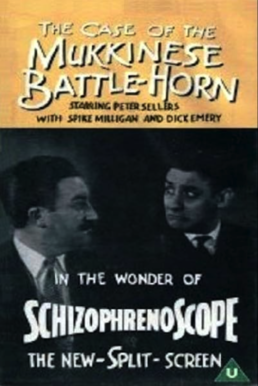
The Case of the Mukkinese Battle-Horn is a 30-minute comedy film directed by Joseph Sterling and starring Peter Sellers, Spike Milligan and Dick Emery. It was made in November 1955, and released in 1956.

Spare a Copper is a 1940 British black-and-white musical comedy war film directed by John Paddy Carstairs and starring George Formby, Dorothy Hyson and Bernard Lee. It was produced by Associated Talking Pictures. It is also known as Call a Cop. The film features the songs, "I'm the Ukulele Man", "On the Beat", "I Wish I Was Back on the Farm" and "I'm Shy". Beryl Reid makes her film debut in an uncredited role, while Ronald Shiner appears similarly uncredited, in the role of the Piano Mover and Tuner.

Nowhere to Go is a 1958 British crime film directed by Seth Holt in his directorial debut. It stars George Nader, Maggie Smith, Bernard Lee, Harry H. Corbett and Bessie Love. A criminal escapes from jail and attempts to recover his stashed loot but is shunned by the criminal community and hunted by the police.

Follow the Boys is a 1963 American comedy film directed by Richard Thorpe and starring Connie Francis, Paula Prentiss, and Janis Paige, released by Metro-Goldwyn-Mayer. Shot on location on the French and Italian Riviera, Follow the Boys was MGM's second film vehicle for top recording artist Francis following Where the Boys Are (1960). While Francis' role in the earlier film had been somewhat secondary, she had a distinctly central role in Follow the Boys playing Bonnie Pulaski, a newlywed traveling the Riviera.

His Excellency is a 1952 British comedy drama film directed by Robert Hamer and starring Eric Portman, Cecil Parker, Helen Cherry and Susan Stephen. It follows a blunt Yorkshireman and former trade union leader, who is sent to take over as Governor of a British-ruled island in the Mediterranean. It was based on the 1950 play of the same name by Dorothy Christie and Campbell Christie. The play was also filmed for Australian television in 1958.

Forces' Sweetheart is a 1953 British comedy film directed by Maclean Rogers and starring Hy Hazell, Harry Secombe and Michael Bentine. Two gormless soldiers become infatuated with a female entertainer.

James Douglas Grafton was a producer, writer and theatrical agent. He served in World War II as an officer in the Bedfordshire and Hertfordshire Regiment and was awarded the Military Cross for his actions during Operation Market Garden.

Patrick "Pat" Kenneth Macneile Dixon was an English radio producer for BBC Radio.
Adele Leigh was an English operatic soprano, later the wife of the Austrian ambassador in London.
